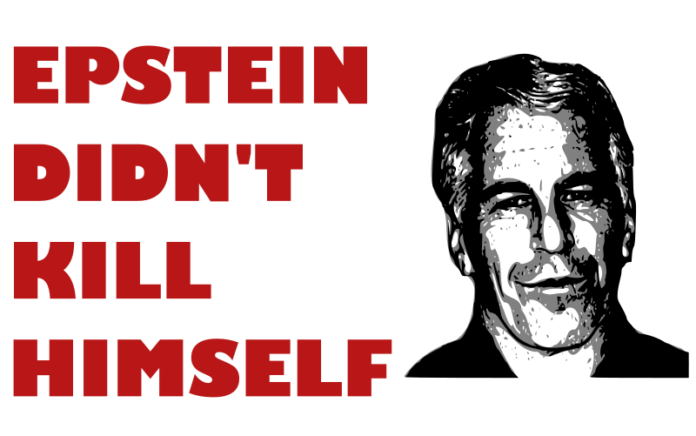
In a dramatic twist to the already convoluted saga surrounding the late Jeffrey Epstein, a new wrench has been thrown into the legal machinery. The anticipated disclosure of a list containing 187 names linked to Epstein has been abruptly postponed due to concerns raised by an individual known only as ‘Jane Doe 107.’ This woman, whose identity remains protected, has expressed fears for her safety if her connection to the case is revealed, citing the conservative nature of her home country.
The delay was sanctioned by Judge Loretta Preska on December 21st, granting ‘Jane Doe 107’ a 30-day window to substantiate her claims of potential danger. The decision has sparked a flurry of speculation and debate, as it raises questions about the balance between public interest and individual privacy rights. With the deadline set for January 22nd, the world watches with bated breath to see if ‘Jane Doe’s’ plea will indeed extend to the entire list or pertain solely to her case.
Jane Doe 107? 👇🏻👇🏻👇🏻 pic.twitter.com/4lrnQmUXO1
— Melchizedek 🐭 (@Melchizedek1972) January 3, 2024
This development has ignited a firestorm of controversy, particularly among those who have long awaited accountability in the Epstein scandal. Critics argue that the delay impedes justice and transparency, especially considering the high-profile nature of some individuals associated with Epstein. Among the names is former President Bill Clinton, who reportedly appears at least 50 times within the documents. The list originates from a 2015 lawsuit filed against Ghislaine Maxwell by Virginia Giuffre, which was settled two years before Epstein’s arrest.
The legal maneuvering has also highlighted the unique challenges faced by women in the justice system. As Maxwell’s attorney pointed out, in a case that revolves around the exploitation of women by powerful men, it is a woman—Maxwell—who currently sits behind bars, while the men implicated remain free. This observation underscores the gendered dimensions of the case and the broader societal issues at play.
Who is Jane Doe 107, and why does she have so much power?
The U.S. District Court for the Southern District of New York will not be publicizing Epstein’s client list until at least Jan. 22 after a judge granted the Jane Doe a 30 day extension, News Nation confirmed Wednesday… pic.twitter.com/bpdWDusYKo
— Sabrina Smolders 🦋🌹 (@SabrinaSmolders) January 3, 2024
Supporters of the list’s release, such as Alan Dershowitz, a former Epstein associate, have voiced their frustration with the selective nature of the disclosures. Dershowitz, who has maintained his innocence, has called for complete transparency, believing that the full release of documents would exonerate him and clarify the extent of his association with Epstein.
The unfolding drama serves as a stark reminder of the complexities inherent in high-profile legal cases. It also poses significant questions about the ethics of unsealing potentially sensitive information. While the public’s right to know is a cornerstone of democratic society, the protection of individuals’ safety and privacy cannot be overlooked.
As the January 22nd deadline approaches, all eyes are on the Southern District Court of New York for answers. Will the court uphold the extension for ‘Jane Doe 107,’ or will the list be released, potentially exposing those named to public scrutiny? The implications of this decision will reverberate far beyond the courtroom, affecting lives, reputations, and the pursuit of justice in the shadow of Epstein’s dark legacy.
In conclusion, the case of ‘Jane Doe 107’ encapsulates the tension between the pursuit of justice and the safeguarding of individual rights. As society grapples with these weighty issues, the outcome of this legal battle will undoubtedly leave an indelible mark on the discourse surrounding crime, punishment, and the rule of law in the context of power and privilege.









